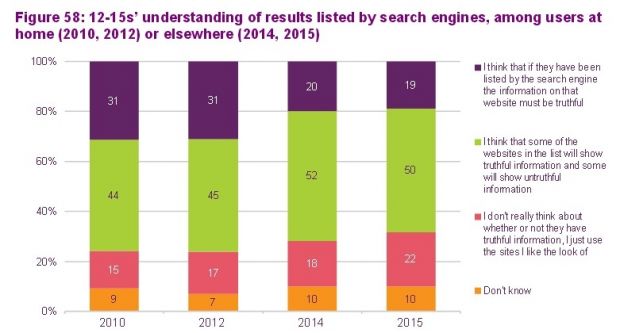The number of kids online has more than doubled in the last ten years, and most of them are unprepared to deal with the virtual world of the Internet, highlights a recent Ofcom report.
According to data gathered from thousands of in-home interviews, Ofcom researchers observed that the online presence of kids between the ages of 8 and 11 grew from 4.4 hours a week in 2005 to 11.1 hours in 2015. For kids in the 12-15 group, this increased from 8 hours in 2005 to 18.9 in 2015. A similar increase was also recorded for TV watching habits.
The report explains this trend by providing data that shows more and more families have Internet access when compared to 2005, and the proliferation of WiFi devices has made it easier for kids to get online from their bedrooms, not just a room in the house, where parents can keep an eye on them.
Additionally, mobile devices like smartphones and tablets have also made it easier for kids to get online. Ofcom says that 11% of kids of ages between 5 and 15 don't rely on desktops, netbooks, or laptops to go online, up from 8% in 2014.
Tablets are also the kids’ favorite device for going online, which they also use for playing games and even watching TV. While fewer children own a mobile phone compared to 2005, more of them own a smartphone, especially in the 12-15 age group.
Facebook is losing face with the new generation
We previously presented a report that showed fewer teens and users, in general, flock to Facebook as their main social media profile. This has been confirmed by the Ofcom report, where the number of teens in the 12-15 age group that nominated Facebook as their favorite social media profile went down while Snapchat grew. Nevertheless, still more teens prefer Facebook overall, with 58% compared to Snapchat's 11%.
When it comes to the type of information they deem reliable, 8% of the 12-15-aged teens said they often go to YouTube for true and accurate information about serious things that are going on in the world. 19% of those who use a search engine to discover information also believe that the data returned by them contains accurate information.
The full 228-page Children and Parents: Media Use and Attitudes Report is available online for free.

 14 DAY TRIAL //
14 DAY TRIAL // 

